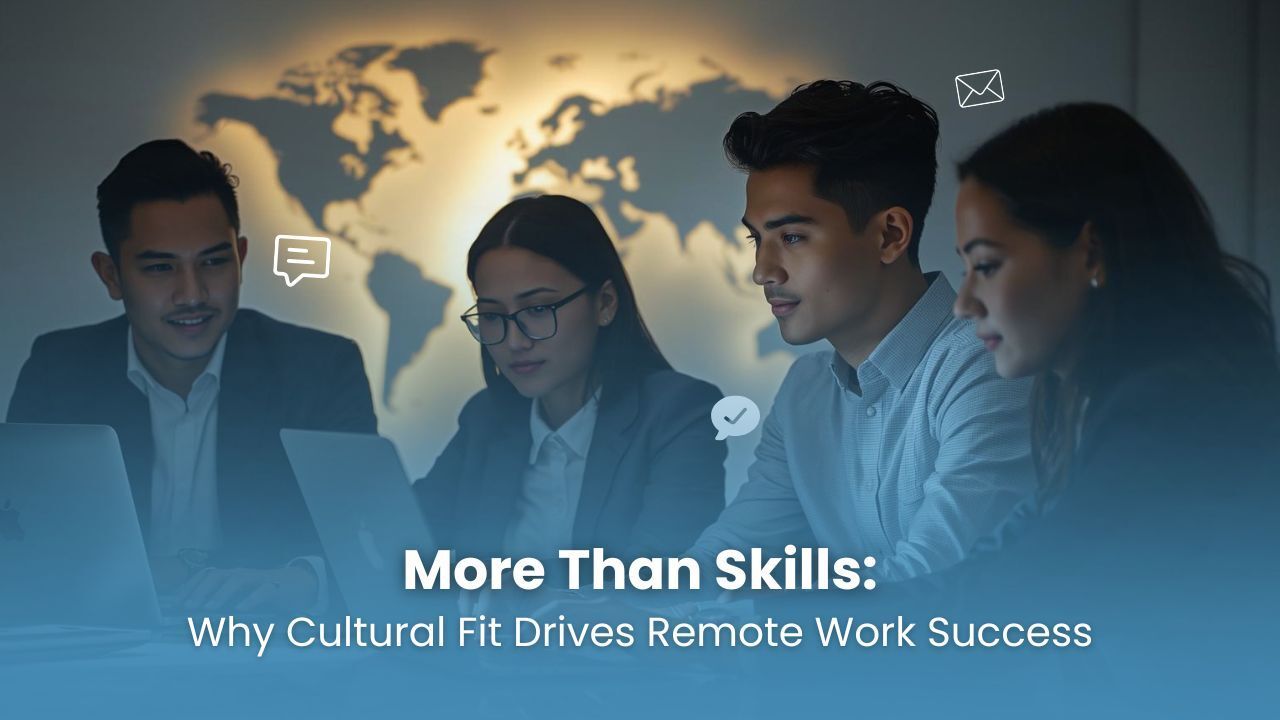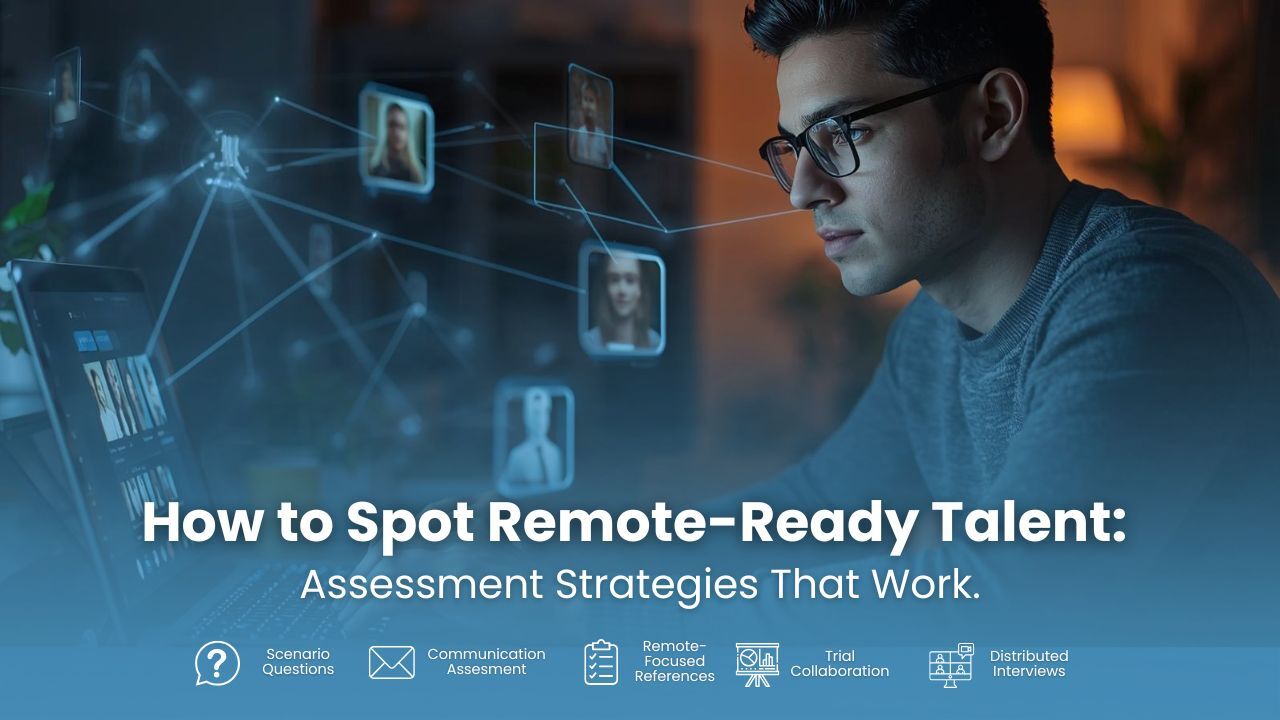
Beyond the Resume: Assessing Cultural Fit for Remote Professionals
Technical skills get candidates noticed, but cultural fit determines whether remote employees will thrive. Research shows poor cultural fit causes up to 89% of hiring failures¹—a challenge amplified when hiring remotely.
Remote hiring mistakes are more expensive than in-office equivalents. Understanding remote-specific cultural requirements dramatically improves retention, productivity, and team performance.
What Remote Work Requires
Self-Direction
Remote professionals must deliver results without constant oversight. They need intrinsic motivation, time management skills, and personal accountability.
Proactive Communication
Communication is everything in distributed teams. Remote workers must naturally over-communicate, regularly update teammates, and provide context that's obvious in office settings.
Asynchronous Collaboration
Remote work spans time zones. Successful candidates document decisions clearly, provide thorough written context, and manage projects without real-time coordination.
Digital-First Mindset
Remote professionals adapt quickly to new tools and build relationships through digital channels effectively.
Red Flags
Heavy Structure Dependence: Need constant direction or immediate feedback
Verbal-Only Preference: Reluctant to use written communication or documentation
Schedule Rigidity: Inflexible about working hours for collaboration needs
Social Validation Dependency: Require constant interaction and immediate recognition
Green Flags
Natural Documentation: Instinctively document work, decisions, and processes
Goal Orientation: Self-directed, focused on outcomes over tasks
Communication Transparency: Proactively share progress and ask questions
Comfort with Ambiguity: Work through uncertain situations independently
Assessment Strategies
Scenario Questions
"How would you handle being stuck on a project when your manager is unavailable in a different time zone?" Listen for self-reliance and problem-solving approaches.
Communication Assessment
Evaluate written communication through email exchanges or written responses. Look for clarity and thoroughness.
Remote-Focused References
Ask: "How did this person manage priorities independently?" Previous remote experience provides valuable insights.
Trial Collaboration
Use structured trial periods with your actual tools and workflows for key hires.
Distributed Interviews
Conduct interviews using your team's remote tools to assess comfort and provide realistic previews.
Implementation
Define Requirements: Document specific traits for your remote environment—self-motivation, transparency, adaptability.
Score Systematically: Use consistent criteria rather than assumptions about remote experience.
Include Remote Team Members: Current remote employees spot fit issues managers might miss.
Business Impact
Strong cultural fits are 40% less likely to leave within the first year². For remote positions with complex onboarding, this retention boost is crucial. Good cultural fits are more productive, need less oversight, and strengthen team collaboration.
Poor fits create productivity issues and communication breakdowns that are harder to fix remotely.
Conclusion
Successful remote organizations build distributed teams that collaborate effectively through digital channels. Cultural fit assessment identifies candidates who'll perform independently while contributing to positive team dynamics.
Focus on remote-relevant behaviors rather than traditional cultural concepts. Organizations mastering remote cultural assessment gain significant competitive advantages in attracting talent who thrive in distributed environments. While these strategies provide a strong foundation, implementing them consistently and objectively can be challenging—especially when hiring at scale or across multiple roles.
At Gabtech Global, we use the Aptive Index to deliver candidates who match your role requirements with precision. Our approach includes role-specific matching that benchmarks candidates against exact job attributes, bias-free selection that focuses on innate drives rather than personality projections, and targeted interviews with custom questions that reveal true fit and potential. Our AI hiring support helps refine role targets and speed up selection for maximum efficiency.
Result: The right talent, every time.
Ready to improve your remote hiring success? Contact Gabtech Global to learn how the Aptive Index can transform your cultural fit assessment process.
Sources:
- Harvard Business Review - "The Hidden Reason People Quit Their Jobs" (2018)
- Columbia Business School - "The Cost of Bad Hiring Decisions and How to Avoid Them" (2019)
